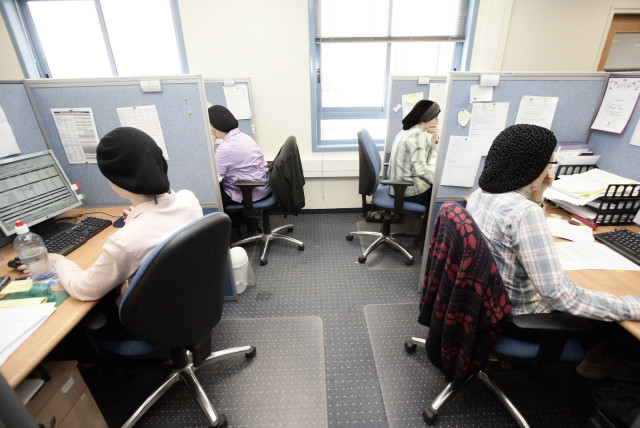Women in hi-tech R&D roles soar by 130% in last decade

Only a tiny fraction of Arab and ultra-Orthodox women are employed in hi-tech roles.
The number of women holding research and development (R&D) roles in the hi-tech industry has soared by 130% over the past decade, according to a report published Thursday by the Israel Innovation Authority.
The report, prepared in collaboration with the Aaron Institute for Economic Policy at Reichman University, was released ahead of International Women’s Day.
It showed that 38% of women in the tech industry held R&D positions in 2023, up from 28% in 2013. Since 2014, 28,000 women have been added to the field of R&D.
More men also hold R&D roles. However, the growth was more moderate, the report showed – from 43.7% of men in R&D positions in 2014 to 53.5% in 2023.
When looking at the gender segmentation of each position, women still lag behind men. The relative share of women among all jobs in R&D increased by 0.3% from 23.1% in 2014 to 26.1% in 2023. This means that it would take until 2035 for women to fill around 30% of R&D positions and almost 50 years to achieve gender equality in R&D positions.
The report added that the proportion of women in hi-tech has stayed the same in the past few decades.
According to the criteria established by the Perlmutter Committee for Human Capital in High-Tech, there were about 561,000 female and male employees in hi-tech positions in Israel in 2023 – around a third of them women, mostly Jewish and non-ultra-Orthodox.
The role of Arab and ultra-Orthodox women
Only a tiny fraction of Arab and ultra-Orthodox women are employed in hi-tech roles, with less than 1% of Arab women and less than 2% of ultra-Orthodox women represented, the report showed.
However, the report highlighted significant growth in tech employment among the Arab population. Their numbers in hi-tech jobs surged by 273% between 2014 and 2023, with a 377% increase in their representation within the tech job market. Their numbers are still low, though, with around 2,100 Arab women employed in the hi-tech industry and a similar number in tech jobs in the rest of the market.
Finally, the IIA partnered with the Trump Foundation to examine gender wage gaps in hi-tech, releasing preliminary numbers for the first time. The study showed that women earn about 20% less than men in hi-tech roles. Even when looking at only R&D positions, women earn about 84% of men’s wages.
Jerusalem Post Store
`; document.getElementById("linkPremium").innerHTML = cont; var divWithLink = document.getElementById("premium-link"); if (divWithLink !== null && divWithLink !== 'undefined') { divWithLink.style.border = "solid 1px #cb0f3e"; divWithLink.style.textAlign = "center"; divWithLink.style.marginBottom = "15px"; divWithLink.style.marginTop = "15px"; divWithLink.style.width = "100%"; divWithLink.style.backgroundColor = "#122952"; divWithLink.style.color = "#ffffff"; divWithLink.style.lineHeight = "1.5"; } } (function (v, i) { });


